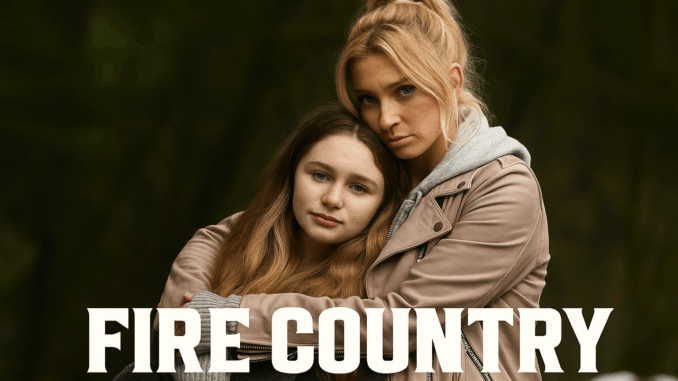
Cara’s death on Fire Country sent shockwaves through fans—but did it cross the line from emotional storytelling into misguided misstep? Dive into why her exit might be the show’s most regrettable choice.
Why Cara’s Death in Fire Country Went Beyond Just a Shock—and May Be the Show’s Biggest Mistake Yet
From the moment Cara’s ambulance wiped out in that devastating firenado, Fire Country viewers were blindsided. The emotional gut punch of her passing—and the ripple effects on Jake and Bode—caused heartbreak. But beyond the tears, there’s a growing belief that this wasn’t just a daring storytelling beat—it might be a critical miscalculation.
A Tragic Moment That Resonated — and Rightly So
The sequence leading to Cara’s death was dramatic and emotionally charged. Impaled by debris and suffering a fatal subdural hematoma, the scene was raw, intense, and undeniably impactful. Cara’s exit created immediate narrative urgency, forcing characters around her—especially Jake and Bode—into uncharted emotional territory.
A Heartfelt Performance Marred by a Misstep
Sabina Gadecki, who portrayed Cara with warmth and nuance, later confessed she was “gutted” by the decision. But she also expressed gratitude—for being told ahead of time and for having a “beautiful” exit arc, rather than feeling written off without care.
Did the Story Need Cara to Die?
Many fans and critics argue that Cara’s fate served a plot—perhaps too conveniently. Her passing propels Jake into fatherhood and forces Bode to face his deepest regrets. But is her death a storytelling necessity, or did the writers fall into the trap of “fridging”—where female characters are hurt or killed primarily to serve male characters’ arcs?
Cara’s death has been called the show’s first big mistake, lamented for cutting short her journey toward motherhood—from reclaiming her bond with Genevieve to personal growth. The show opened the door to meaty storylines, but at the cost of her potential as a central figure.
A Pattern—or Just One Unfortunate Choice?
This wasn’t the first time the show killed a female character—but it might be the most controversial. Previous losses, like Riley or Rebecca, were woven into larger ensemble arcs or helped develop individual characters in thoughtful ways. Cara’s death, by contrast, feels more transactional—her story cut to ignite reaction in others.
The Absence of Mother-Daughter Dynamics on the Show
One of the most glaring losses in Cara’s exit is what she represented—but will no longer have the chance to embody. Fire Country has shown few positive mother-daughter bonds. Cara and Genevieve’s evolving connection could have been a groundbreaking addition. Now, with her gone, the opportunity for that is gone, too.
In Summary: A Bold Move That May Have Been Overdone
Cara’s death undeniably delivered emotional weight and catalyzed high-stakes drama. But behind the tears and plot ripples lies a lingering question: Did the show gain more by letting her go… or lose a powerful narrative thread?
A gripping performance and an explosive moment don’t always justify the loss of irreplaceable potential. In its quest for impactful storytelling, Fire Country may have inadvertently alienated some viewers by sidelining a vital female voice far too early.